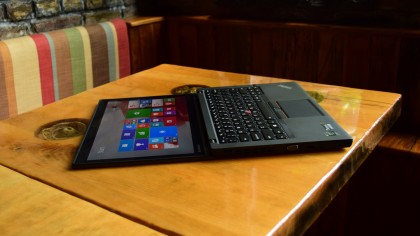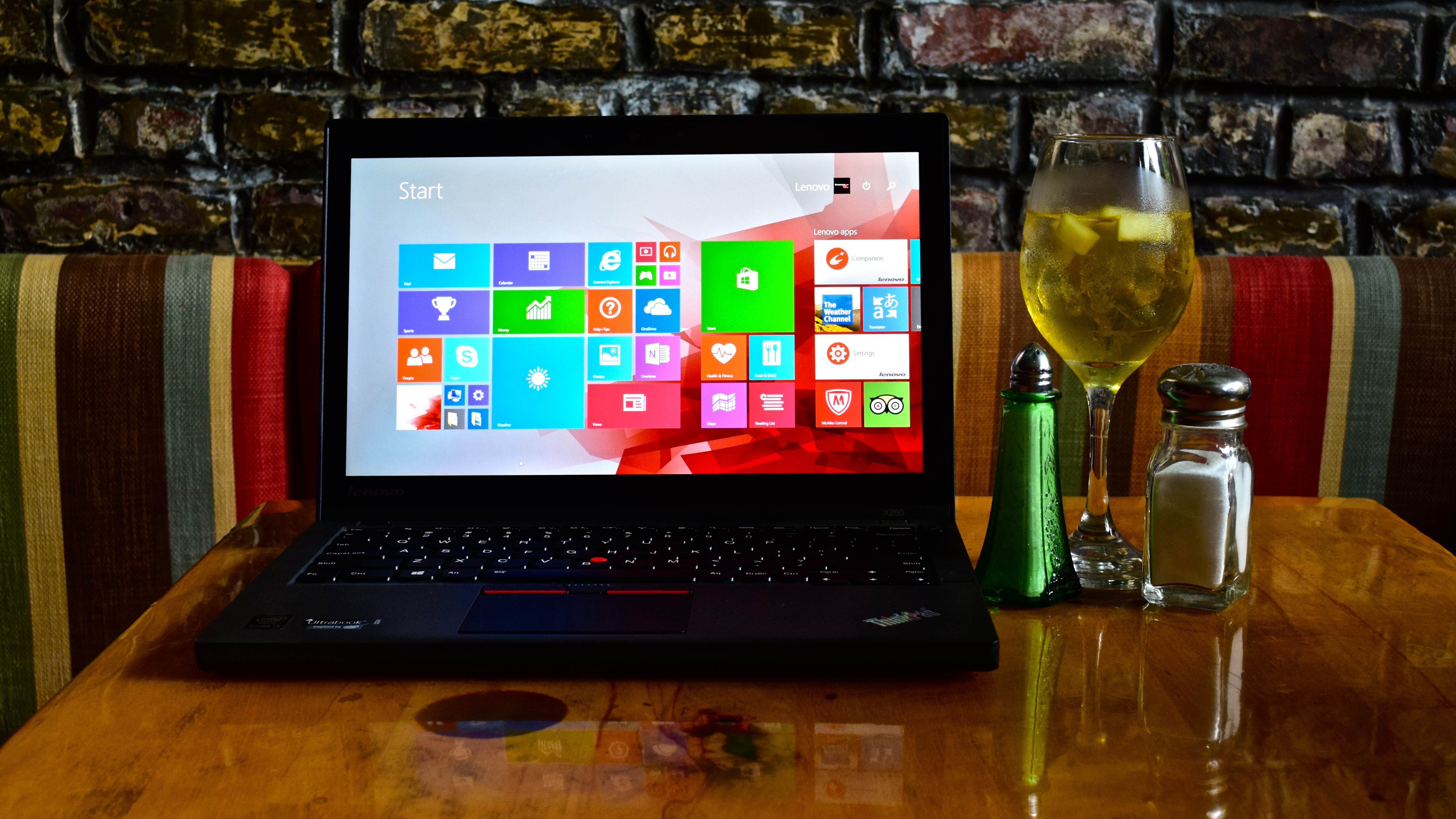Why you can trust TechRadar
The X250 can be customized in a variety of different ways. You can go as low as fifth-generation Intel Core i3 processors, or you can order an i7 for more demanding computing needs.
All versions of the device feature Intel HD Graphics 5500, but what you're seeing on-screen can be displayed on a panel that comes in four different models: HD touch, HD no-touch, HD multi-touch, or full HD touch.

Port-wise, you're pretty well covered for most needs. See below for a full rundown of the specifications and inputs as featured on the X250 unit sent to TechRadar.
Specifications
- CPU: 2.2GHz Intel Core i5-5200U (3MB Cache, up to 2.70 GHz with Turbo Boost
- Graphics: Intel HD Graphics 5500
- RAM: 8GB DDR3L-1600 PC3-12800 1600 MHz
- Screen: Full HD (1,920 x 1,080) touchscreen
- Storage: 146 GB
- Ports: 1 x VGA, 1 x mini DisplayPort, 2 x USB 3.0, 1 x Integrated Smartcard Reader, 1 x Mic / headphone combo, 1 x RJ45 (ethernet), 1 x Fingerprint reader, 4-in-1 card reader (SD, MMC, SDHC, SDXC)
- Connectivity: Intel 7265 AC/B/G/N Dual Band Wireless; Bluetooth 4.0
- Camera: 720p webcam
- Weight: 3lbs (1.3kg)
- Size: 12.03 x 8.21 x 0.8 inches (W x D x H)
Here's where the X250 makes up ground against the lighter and prettier XPS 13 and Zenbook UX305. If you constantly need to plug and unplug your laptop from a bevvy of displays, printers, etc. then you're going to enjoy the X250's flexibility. The Zenbook features three USB 3.0 ports, a micro HDMI connector, and an SD card slot. The XPS 13 has two USB 3.0 ports, a mini DisplayPort, and a 3-in-1 (SD, SDHC, SDXC) reader. Ports are not a reason to buy a laptop. However, if you're on the fence, the X250's connections just might sway you.
Performance
I have no complaints about my day-to-day experience with the X250. Programs opened snappily, I was able to open a bunch of tabs at once without crashing the browser and video streamed smoothly.
But, as you'll see below, the X250 doesn't benchmark as a business class device should. It's right on par with consumer Ultrabooks, but even in this class it loses some head-to-head comparisons.
Here's how the X250 performed in our suite of benchmark tests:
Sign up to the TechRadar Pro newsletter to get all the top news, opinion, features and guidance your business needs to succeed!
- 3DMark: Cloud Gate: 4,475; Sky Diver: 4,275; Fire Strike: 606
- Cinebench CPU: 249 points; Graphics: 23.04 fps,
- PCMark 8 (Home Test): 2,238 points
- PCMark 8 Battery Life: 3 hours and 33 minutes
The X250 ran slightly faster than the XPS 13 and Zenbook, which scored a 2,104 and 2,107 on the PCMark 8 Home test, respectively. This test measures typical PC use in the home and the office.
The X250 features an Intel HD 5500 GPU, which was released in early 2015. Like the XPS 13, the X250 does a better job handling design tasks than the Zenbook, which features a previous generation chip. Unfortunately, the XPS 13 blows the X250 out of the water in graphics rendering, scoring a 739 on 3DMark's Fire Strike test, compared to the X250's 606 points. The ZenBook scored 594 points.
The X250 is again middle-of-the-pack when it comes to a computer's ability to process graphics and manage gameplay physics. On 3DMark's Cloud Gate test, the X250 scored 4,475 points, compared to the XPS 13, which scored 4,935 points and the Zenbook, which scored 4,210 points.

During Cinebench's frame rate test, the XPS 13 managed 28.76 frames per second (fps), a little more than 7 fps than the Asus and about 5.7 frames per second better than the X250. The XPS also outperformed the X250 during Cinebench's CPU test, which measures a CPU's multi-core and hyper threading performance . The X250 scored 249 points, the Asus only scored 202 points, and the XPS crushed them both with a 259-point performance.
Battery life
The X250's battery lasted three hours and 33 minutes during the PCMark 8 Battery Life test, which performs a wide range of tasks simultaneously, including video editing, web browsing and gaming. This is a dramatic underperformance compared to the Asus Zenbook and the XPS 13, which ran for five hours and 21 minutes and four hours and 21 minutes, respectively.
However, it's important to remember that, with the X250, you can swap in a new battery when the current one runs low. So, you could double the X250's PCMark score to make your final determination.
I was able to crank out five hours and 46 minutes of video playback by lowering the screen brightness and audio volume to 50%. So, you're looking at about 12 hours of continuous usage with both batteries on-hand, which is more than sufficient.
